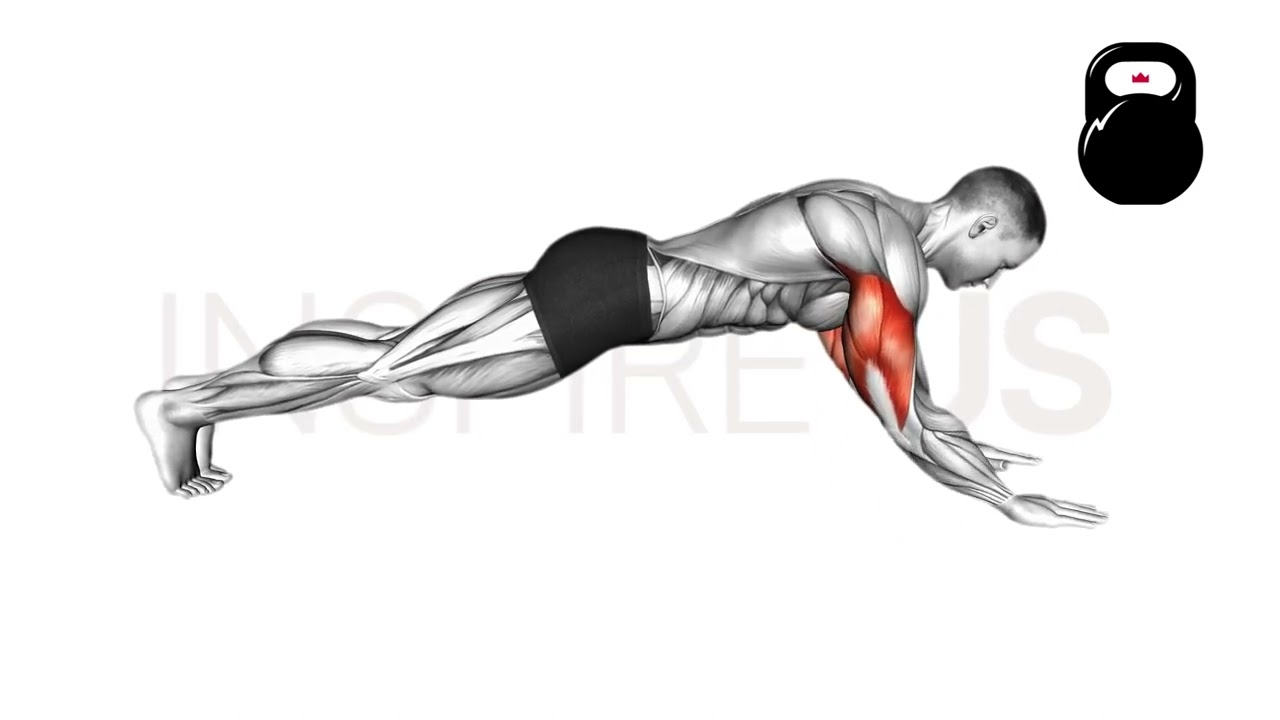Sphinx Push Up: Benefits, Muscles Worked, and More
Although the usual calisthenics advice for working your triceps is to perform bench dips, the sphinx push-up provides a ready alternative that requires no equipment whatsoever and isolates your triceps to an even more effective degree.
In this article, we will discuss how to go about performing this rather underrated calisthenics exercise, how best to take advantage of it for upper body development, and the most common mistakes you may be making.
What is a Sphinx Push-Up?
The sphinx push-up is an advanced push-up variation classified as a multi-joint calisthenics exercise with a particular emphasis on the muscles of the triceps brachii.
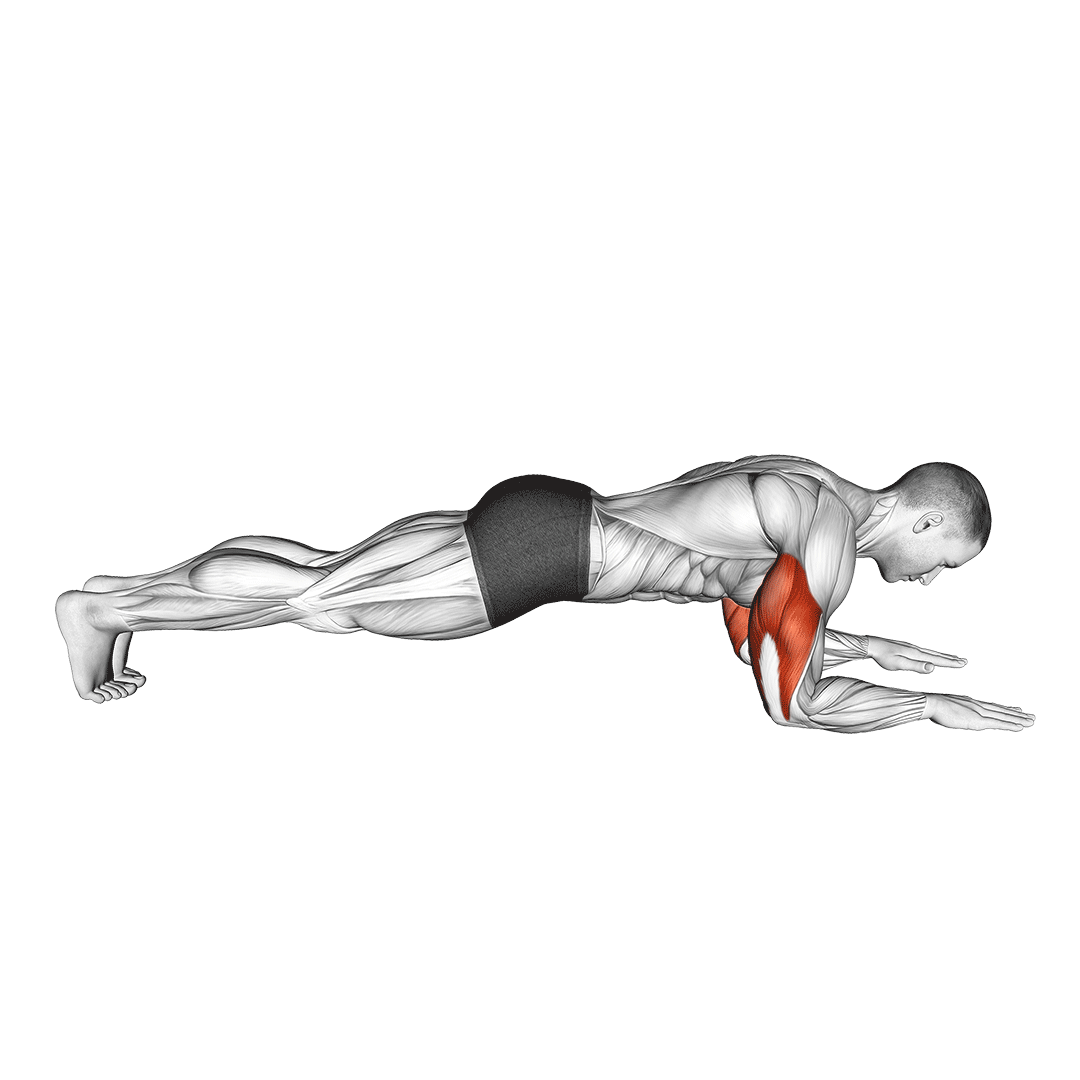
As the name implies, the sphinx push-up is performed with the exerciser replicating the general stance of the famous Egyptian sphinx while in an otherwise traditional push-up position.
This greatly reduces the amount of shoulder rotation that occurs, and instead features far more focus on elbow extension.
Sphinx push-ups are most often used as a secondary compound exercise to heavier and more general upper body exercises like the conventional push-up, bench press or parallel bar dip.
Who Should do Sphinx Push-Ups?
The sphinx push-up requires some level of familiarity with general calisthenics mechanics and a decent level of upper body strength to pull off correctly.
Because of these requirements, the sphinx push-up is considered to be a more advanced exercise than most other push-up variations, and may not be appropriate for novices to bodyweight training.
How to Do Sphinx Push-Ups with Proper Form
To perform a repetition of the sphinx push-up, the exerciser will enter the standard push-up position with their legs fully extended, core contracted and all four extremities supporting the torso.
Rather than only placing the palms flat against the ground however, the exerciser will instead lay their forearms face-down across the floor in front of them, aligning them with the shoulders.
From this stance, the exerciser will ensure that the rest of their body is properly tensed before engaging their triceps and straightening their arms outwards.
This should have the effect of raising the upper body into a more traditional push-up position (i.e. palms touching the floor).
Once the elbows are fully extended, the exerciser will simply reverse the motion and return their forearms to the floor - thereby completing the repetition.
What Muscles are Worked by the Sphinx Push-Up?
Sphinx push-ups are what is known as a compound movement - meaning that more than a single muscle is involved in its movement pattern.

These muscles are divided according to whether they are contracted in a dynamic or static manner, with the former referred to as “mover” muscles and the latter being called “stabilizer” muscles.
Primary Movers and Secondary Movers
During a repetition of the sphinx push-up, the muscles of the triceps brachii, anterior deltoid head and the pectorals are utilized to generate the majority of the force needed.
In particular, the triceps brachii receive the greatest benefit from the exercise, but are also the pivotal muscle in its movement pattern.
This means that individuals with poor triceps strength may be unable to properly complete a repetition of the sphinx push-up.
Stabilizer Muscles
In terms of isometric contraction, the muscles of the abdominals, glutes and the remaining two heads of the deltoids muscle group are utilized.
What are the Benefits of Doing Sphinx Push-Ups?
With proper form and programming, sphinx push-ups can offer the following benefits to great effect.
One of the Best Bodyweight Exercises for the Triceps
Despite the compound nature of the sphinx push-up, it is considered to be among one of the best calisthenics tools for building strong and muscular triceps.
While other movements like the diamond push-up or triceps dip do indeed target the triceps with a similar level of emphasis, the large range of motion and highly dynamic nature of the sphinx push-up allows for an intensity of triceps hypertrophy that is difficult to replicate with most other bodyweight exercises.
Furthermore, the sphinx push-up helps calisthenics athletes overcome their push-up limitations if the primary reason why their push-ups are limited is due to triceps fatigue.
With regular inclusion into their training routine, the sphinx push-up can help build endurance in the triceps and overcome any training limitations that they may present.
Reinforces Elbow Flexion and Extension
Because the triceps are primarily responsible for elbow extension, it is no surprise that regularly performing the triceps-dominant sphinx push-up will subsequently also strengthen the biomechanic of elbow extension.
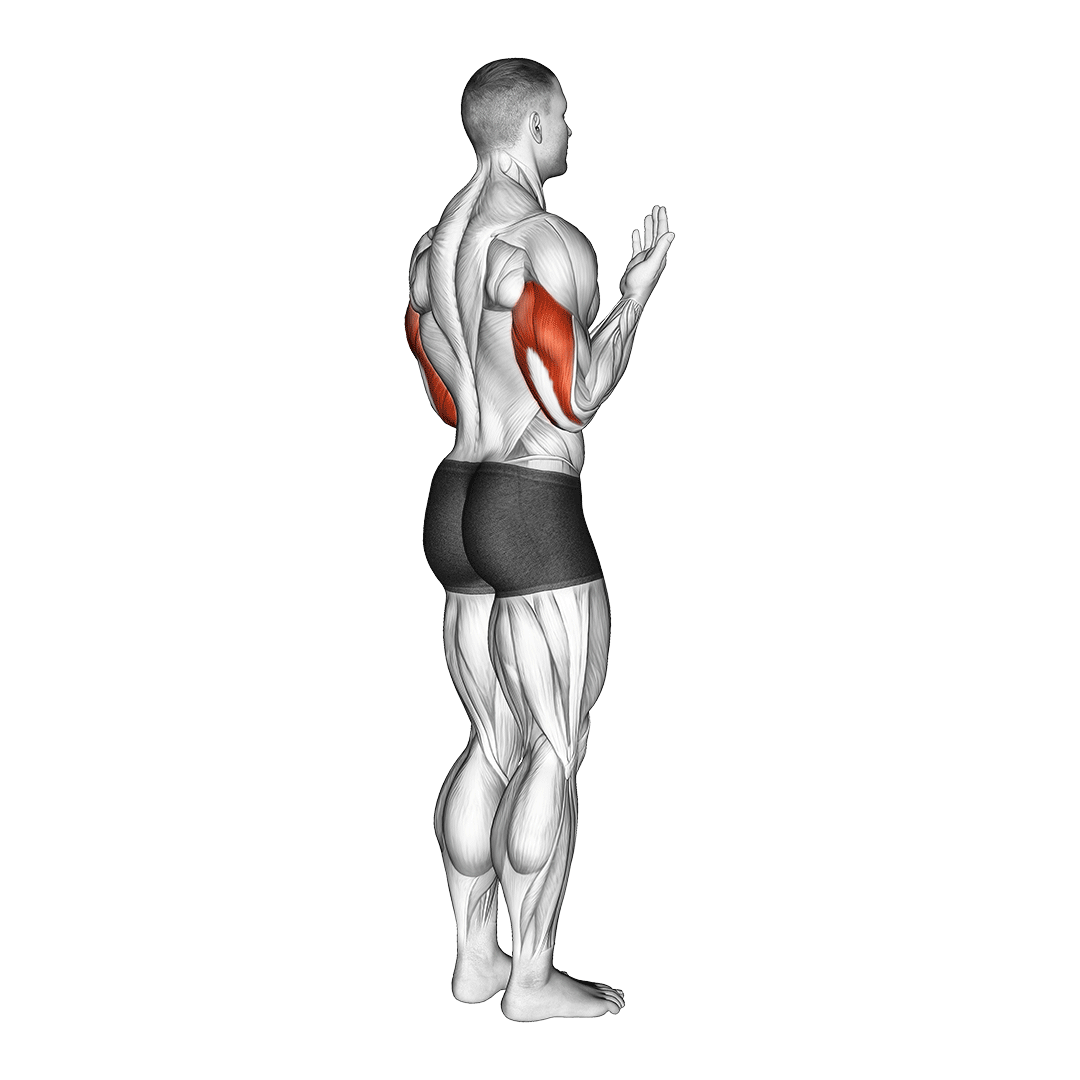
However, the lengthy eccentric phase of the movement also means that the exerciser will become more accustomed to executing elbow flexion in a large range of motion - further strengthening and protecting the elbow joint as a whole.
Excellent for Improving Core Stability
The sphinx push-up is characterized by its rather unusual stance - of which is particularly difficult to stabilize as the hands are further forwards and more of the upper body’s support is reduced as the exercise is performed.
This equates to the core musculature (the abdominals and nearby muscles) adapting to become greater at isometric contraction over time, leading to a more stable body and helping protect the spine from future injury.
Carryover to Tricep Dips and Most Push-Up Variations
The sphinx push-up strengthens the triceps and core in a manner that also improves performance in exercises not necessarily related to the sphinx push-up.
This includes more triceps-focused movements such as the bench dip, but can also encompass general execution with most other push-up variations as well.
Common Sphinx Push-Up Mistakes to Avoid
Some of the more common sphinx push-up mistakes are also the most dangerous.
The following issues should be corrected so as to create a safer and more effective workout as a whole.
Generating Momentum With the Lower Body
One commonly seen error of the sphinx push-up is the exerciser straightening their legs as they raise their forearms from the floor. This is often preceded by the knees or hips sagging prior to beginning the repetition, and could be a sign of the exercise being too difficult for the exerciser’s current capabilities.
In order to prevent this particular mistake occurring, it is important for the exerciser to ensure that their legs are fully extended and their glutes squeezed prior to even beginning a repetition.
Failing to do so may mean that further isometric training is needed, or that the exerciser requires further practice with maintaining a plank stance.
Flaring the Elbows Outwards
Although some level of elbow flaring may be present during the sphinx push-up (depending on mobility and proportions), it is important to ensure that the elbows do not point out to the sides throughout the movement.
As the elbows flare out to the sides, much unneeded pressure will be placed along the elbows themselves - as well as within the shoulder joint. This will not only make the exercise more difficult to perform, but also lead to chronic injuries.
For exercisers having difficulty maintaining a more neutral elbow tracking angle throughout the sphinx push-up, working on their wrist, elbow and shoulder mobility may be the best option.
Failing to Complete a Full Range of Motion
As is the case in most other exercises, failing to perform the sphinx push-up throughout start to finish can negate some of its rather powerful benefits - as well as potentially injure the lifter, if the shortened range of motion is combined with poor form or excessive momentum.
Each repetition of the sphinx push-up must begin with the forearms laying atop the floor, and with the exerciser’s body rigid in a plank stance. This should be followed with the apex of the repetition featuring the elbows being fully extended, and end in much the same position as the start as well.
Allowing the Body to Sag or Failing to Contract the Core
More of a general mistake seen in all forms of push-ups - throughout the entire sphinx push-up set, it is important to ensure that the body forms a rigid line that is stabilized through contraction of the core and glutes.
Not only does doing so ensure that a full range of motion is achieved, but it also provides the benefit of allowing the sphinx push-up to act as a core exercise alongside a triceps-and-chest one.
Exercisers finding that their core begins to destabilize or fail during a set of sphinx push-ups may wish to add further core isolation work into their training program.
Sphinx Push-Up Alternatives for Triceps Growth
Although the sphinx push-up is considered to be one of the best bodyweight triceps exercises in its own right, the following alternatives can be quite useful for those who cannot perform a full set of sphinx push-ups - or those that simply wish to change up their training routine.
Bench Dips
Bench dips are the quintessential calisthenic triceps movement, as they allow for significant training volume to be directed towards the triceps brachii without the need for significant upper body strength, technical skill or even actual exercise equipment.
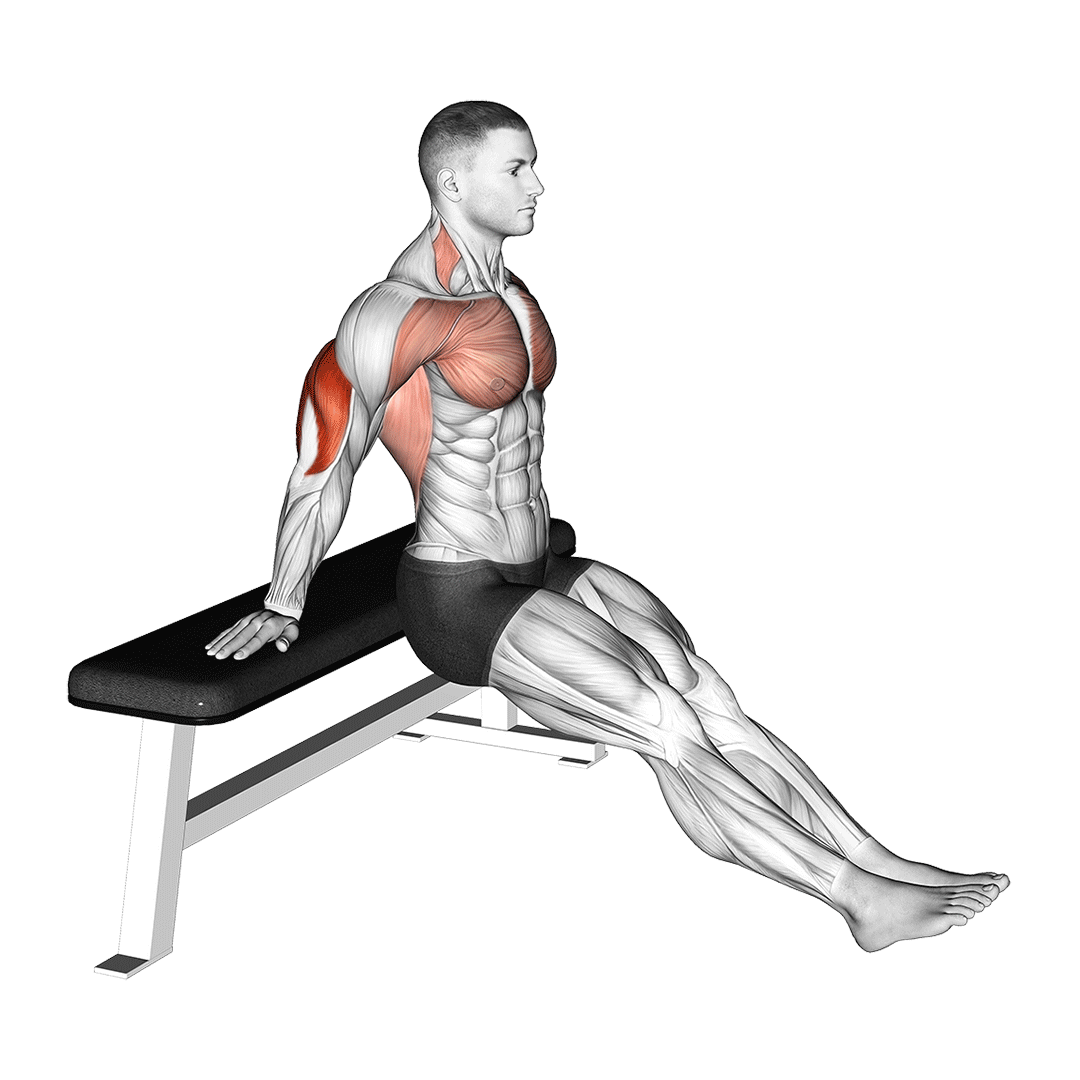
Of course, triceps dips are considered to also be significantly easier than the sphinx push-up, and may not provide as much of a challenge for more advanced calisthenics athletes.
Diamond Push-Ups
The diamond push-up is a similar variation of the sphinx push-up where the exerciser’s hands are placed close together beneath the torso so as to elicit greater triceps activation.
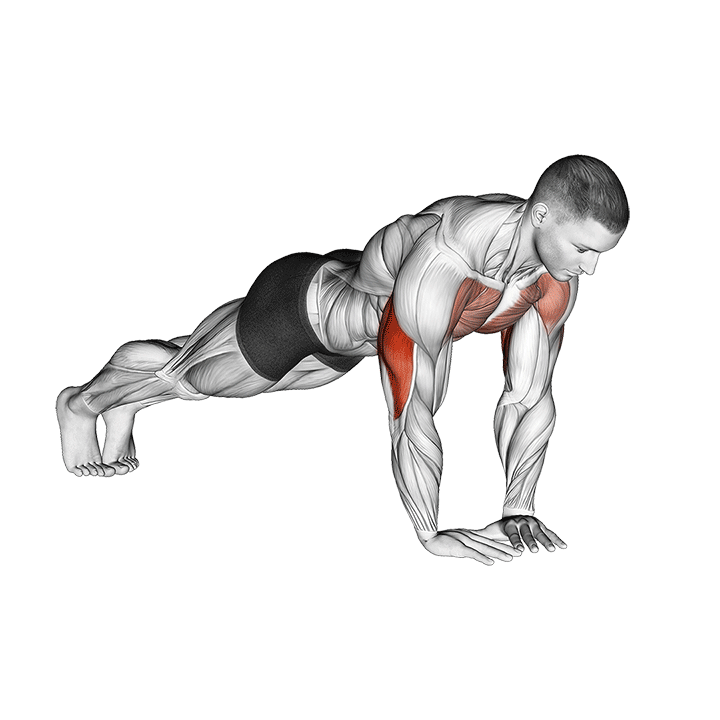
Unlike the sphinx push-up, the diamond push-up is still considered to be quite effective at targeting the pectorals and deltoids, and as such will not focus on the triceps to the same extent.
Diamond push-ups are also considered to be somewhat easier than sphinx push-ups, and can provide a ready alternative for calisthenics practitioners who cannot perform a full set of sphinx push-ups but still wish to build greater triceps musculature.
Triceps Side Push-Ups (One Arm Lateral Push-Ups)
A lesser known triceps-focused calisthenics movement is the side push-up - of which shares a similar purpose to the sphinx push-up in their emphasis on the triceps brachii.
Unlike the sphinx push-up, the side push-up is a unilateral exercise that involves very little contraction of the pectorals or core, and as such is one of the best possible substitutes to the sphinx push-up in the role of an accessory movement.
Frequently Asked Questions (FAQ)
How Hard are Sphinx Push-Ups?
Sphinx push-ups are considered to be quite difficult in comparison to conventional push-ups, and as such may be classified as an “advanced” exercise.
What do Sphinx Push-Ups Work?
Sphinx push-ups are primarily meant to target the triceps brachii, but also work the front-facing portion of the shoulders and the muscles of the chest as well.
In addition, sphinx push-ups are also quite useful for training the core muscles, as the entire exercise is performed in a plank stance.
What Happens if You Do Sphinx Push-Ups Everyday?
We do not advise performing any exercise on a daily basis, let alone one as advanced as the sphinx push-up; Doing so will lead to overtraining and generally poor results.
Instead, try performing sphinx push-ups for 2-4 sets on alternating days. This should allot enough time for your body to recover between training sessions, keeping you healthy and maximizing the benefits sphinx push-ups will give.
Final Thoughts
While Sphinx push ups are indeed an excellent movement for targeting the triceps brachii, they aren’t the only one. Try out exercises like the diamond push-up or triceps dip - both of which will allow you to build up to the sphinx push-up in terms of strength and technical expertise.
Remember to perform the exercise with as perfect form as possible, and to perform an elbow and shoulder mobility drill prior to beginning your workout.
References
1 N.A. (2022) “Ultimate Guide to Weight-Free Exercises”. Pp141 “Sphinx Push-Up”. United States: Thunder Bay Press, 2022. ISBN:9781645179146, 1645179141

